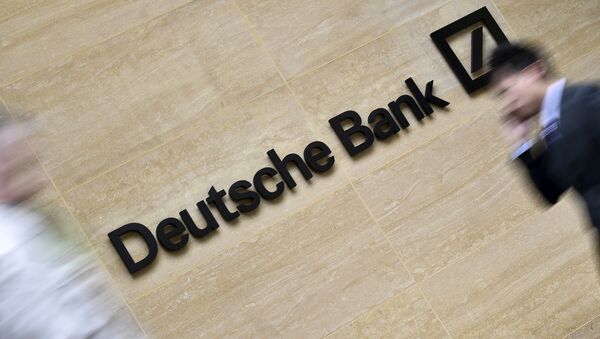MOSCOW (Sputnik) — German companies will question the expansion of their activities in the United Kingdom if the British people support Brexit in the June referendum, but are not likely to leave the market, the head of the British-German Association told Sputnik.
"Deutsche Bank, German Railways employs 25,000 in the United Kingdom, Siemens has 20,000 people, Bosch has a similar number of people, they are not going to suddenly just walk away, but would make decisions about whether they would invest in a new factory," Stephen Watson said.
Watson added, however, that German companies would still continue operating on the UK market, irrespective of the referendum results.
Watson reminded that Germany was UK's biggest single trading partner in the European Union.
Moreover, Watson thinks that the UK risks losing access to the EU single market in the long run, if the Britons vote for leaving the European Union.
"I think for most UK businesses, the value is access to the single market," Stephen Watson said.
"And overtime, clearly being outside, there will be complexities, there will be barriers and in ten years from now, British companies like the automotive sector which is very successful here, with many German players involved, could find their businesses on the wrong side of that single market and denied access to it," he explained.
Watson underlined that the United Kingdom was behind the establishment of the European single market, as well as its key player. He also stressed that many German companies operating in the UK are very worried because in the end, if Britain exits the EU, it would not be able to influence the decisions regarding the single market operations.
Last week, UK Prime Minister David Cameron and 27 of his European colleagues negotiated a deal to grant the UK special status within the bloc.
Cameron sought to revise the terms of his country's EU membership, focusing on four main issues: shifting power away from EU authorities to the UK national legislature, exempting Britain from the EU "superstate" principle, stripping the euro of the single official EU currency status, and protecting the British economy by keeping eurozone members away from non-eurozone countries’ affairs.




